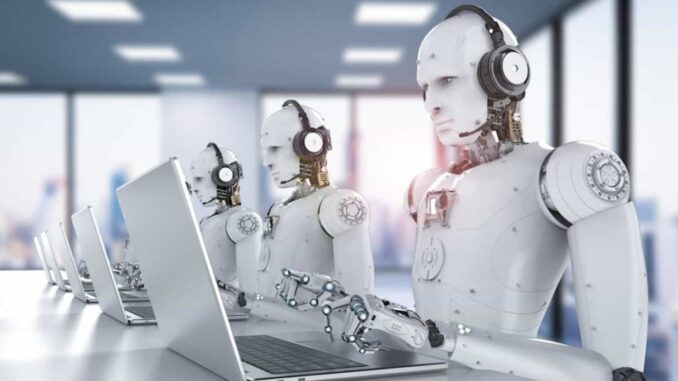
The impact of AI on the modern workplace is vast and multifaceted, touching on various aspects such as productivity,
job roles, decision-making, and workplace dynamics. Here are some key areas where AI is making a significant impact:











1. Automation of Routine Tasks
AI is increasingly automating routine and repetitive tasks, freeing up employees to focus on more complex and creative aspects of their jobs. Examples include data entry, scheduling, and basic customer service interactions.
2. Enhanced Decision-Making
AI systems can process and analyze large volumes of data much faster than humans, providing valuable insights and predictive analytics. This helps in making informed decisions, optimizing operations, and identifying trends and opportunities.
3. Improved Customer Service
AI-powered chatbots and virtual assistants are enhancing customer service by providing instant responses to common queries, resolving issues efficiently, and offering personalized experiences. This not only improves customer satisfaction but also reduces the workload on human customer service agents.
4. Job Evolution
While AI is automating some jobs, it is also creating new roles that require human oversight, programming, and maintenance of AI systems. There is a growing demand for skills in AI development, data science, and cybersecurity.
5. Increased Productivity
AI tools can significantly boost productivity by optimizing workflows, reducing errors, and speeding up processes. For example, AI can help in project management by predicting project timelines and resource allocation needs.
6. Workforce Analytics
AI-driven analytics tools can provide insights into employee performance, satisfaction, and engagement. This can help organizations identify areas for improvement, develop targeted training programs, and enhance overall workforce management.
7. Personalization and Customization
AI allows for greater personalization in various aspects of work, from personalized learning and development plans for employees to customized marketing strategies for customers. This leads to more effective and engaging experiences.
8. Remote Work and Collaboration
AI tools facilitate remote work and collaboration by providing virtual meeting assistants, real-time translation, and transcription services, as well as intelligent scheduling and task management.
9. Enhanced Security
AI enhances workplace security through advanced threat detection and response systems. AI can monitor network activity, detect anomalies, and respond to potential security breaches more quickly and effectively than traditional methods.
10. Ethical and Social Considerations
The integration of AI in the workplace raises important ethical and social considerations, such as data privacy, job displacement, and the need for transparency in AI decision-making processes. Organizations must navigate these challenges carefully to ensure responsible AI use.
Challenges and Considerations
Despite the many benefits, there are challenges associated with the integration of AI in the workplace. These include:
Job Displacement: Automation can lead to job losses in certain sectors, particularly for roles that are highly repetitive and do not require complex decision-making.
Bias and Fairness: AI systems can inadvertently perpetuate biases present in training data, leading to unfair treatment or discrimination in hiring, promotions, and other HR processes.
Privacy Concerns: The use of AI for monitoring and analyzing employee behavior raises concerns about privacy and surveillance in the workplace.
Skill Gaps: There is a growing need for employees to acquire new skills to work effectively alongside AI systems. This requires investment in training and education.
In conclusion, AI is reshaping the modern workplace in profound ways, offering numerous benefits while also posing significant challenges. The successful integration of AI requires careful planning, ethical considerations, and a commitment to continuous learning and adaptation.

Leave a Reply